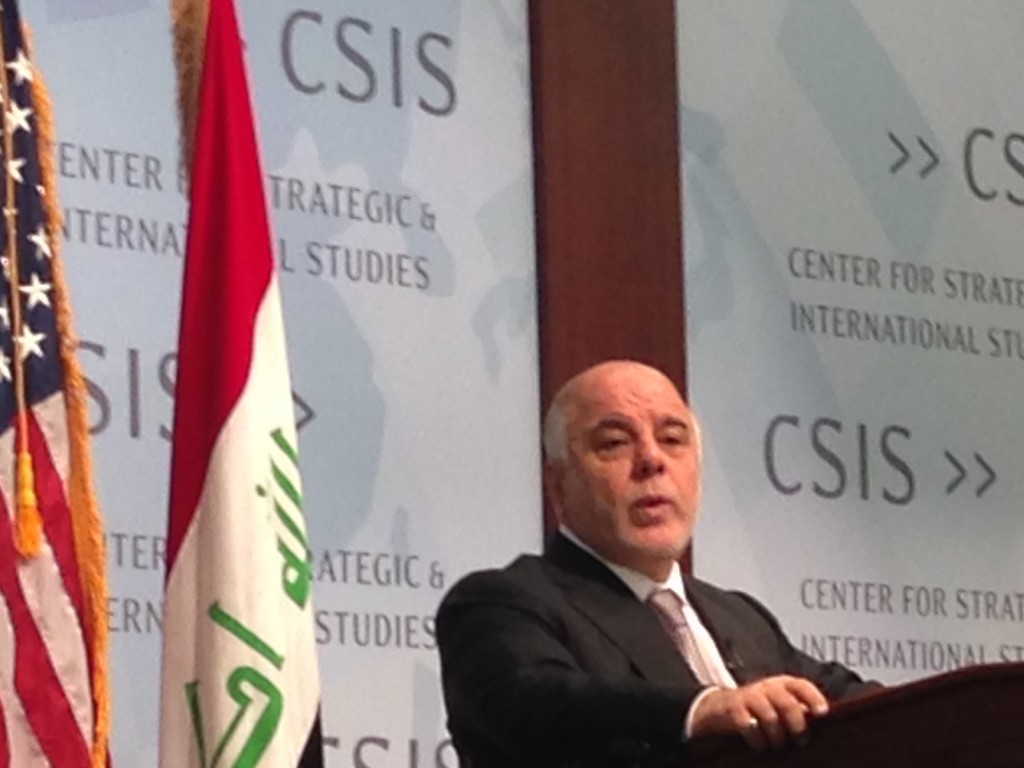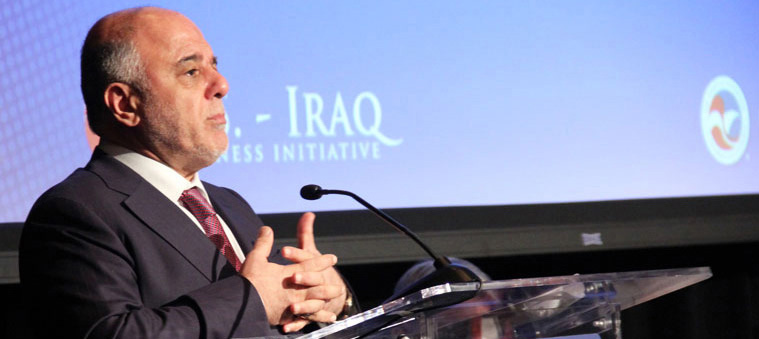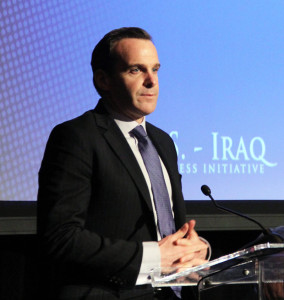
Iraqi Prime Minister Haider Al-Abadi speaks Thursday morning at the Center for Strategic and International Studies in Washington. (Tobias Burns/MEDILL)
WASHINGTON — Despite a recent series of military losses, the self-proclaimed Islamic State is still more than capable of concerning Iraqi Prime Minister Haider Al-Abadi.
“They are frightening their enemies,” he said this morning at the Center for Strategic and International Studies, “and they’re very good at using the media to achieve this end.”
Al-Abadi is making his first official visit to Washington this week, meeting with President Barack Obama and Congressional leaders to drum up support for his campaign against the insurgent group, which still controls significant portions of the country including major cities Mosul and Anbar, as well as to seek foreign investment in Iraq’s flagging economy.
To combat “the psychological force” of ISIS, Al-Abadi stressed the need for his own government to “remain visible.”
“People want to see the restitution of their government,” he said. “The state must actually be there.”
Last month Iraqi forces were able to recapture the city of Tikrit from ISIS, which had initially taken the city in June of 2014 as part of a major offensive in the north of the country.
Increasing the presence of government in both the minds and day-to-day lives of Iraqis is one of the new administration’s primary objectives. Iraq’s last president, Nouri Al-Maliki, who left office only after threatening what looked like a coup, garnered a reputation for exploiting sectarian rifts within the country and diminishing public services.
Creating a unified perception of government will require international cooperation, Al-Abadi said. This week he meets with the World Bank and International Monetary Fund to secure development loans that will fund a host of different economic and security initiatives, including investment in petrochemicals, agriculture and police.
This evening the U.S. Chamber of Commerce will host the prime minister at a reception as he attempts to woo the American business community.
He also addressed questions surrounding his critical comments about Saudi Arabia’s air campaign against Houthi insurgents in Yemen, which prompted a harsh rejoinder from a top Saudi official and astonishment in the press.
“We are very sensitive to wars,” Al-Abadi said in a tone that was markedly more conciliatory. “The end to this war must be soon.”







